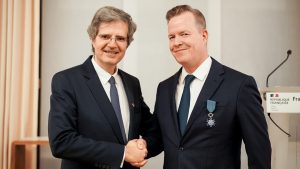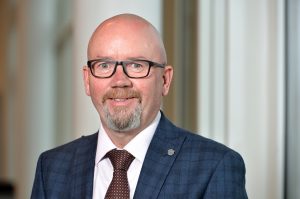Atlas Copco’s SVP Controlling and Finance and CFO Hans Ola Meyer to retire in 2021
Hans Ola Meyer, born 1955, began his Atlas Copco career in 1978. Between 1984 and 1991 he was employed outside the Group. He returned to Atlas Copco in 1991 and has since 1993 been a member of the Group Management.
"Hans Ola has contributed to Atlas Copco’s success in many ways during his long career,” said Mats Rahmström, President and CEO. “He has been a dedicated leader and with his vast experience and knowledge he has been a very appreciated member of the Group Management.”
Hans Ola Meyer will remain in his current role until end of July 2021 and ensure a smooth transition.
Source: Atlas Copco AB







